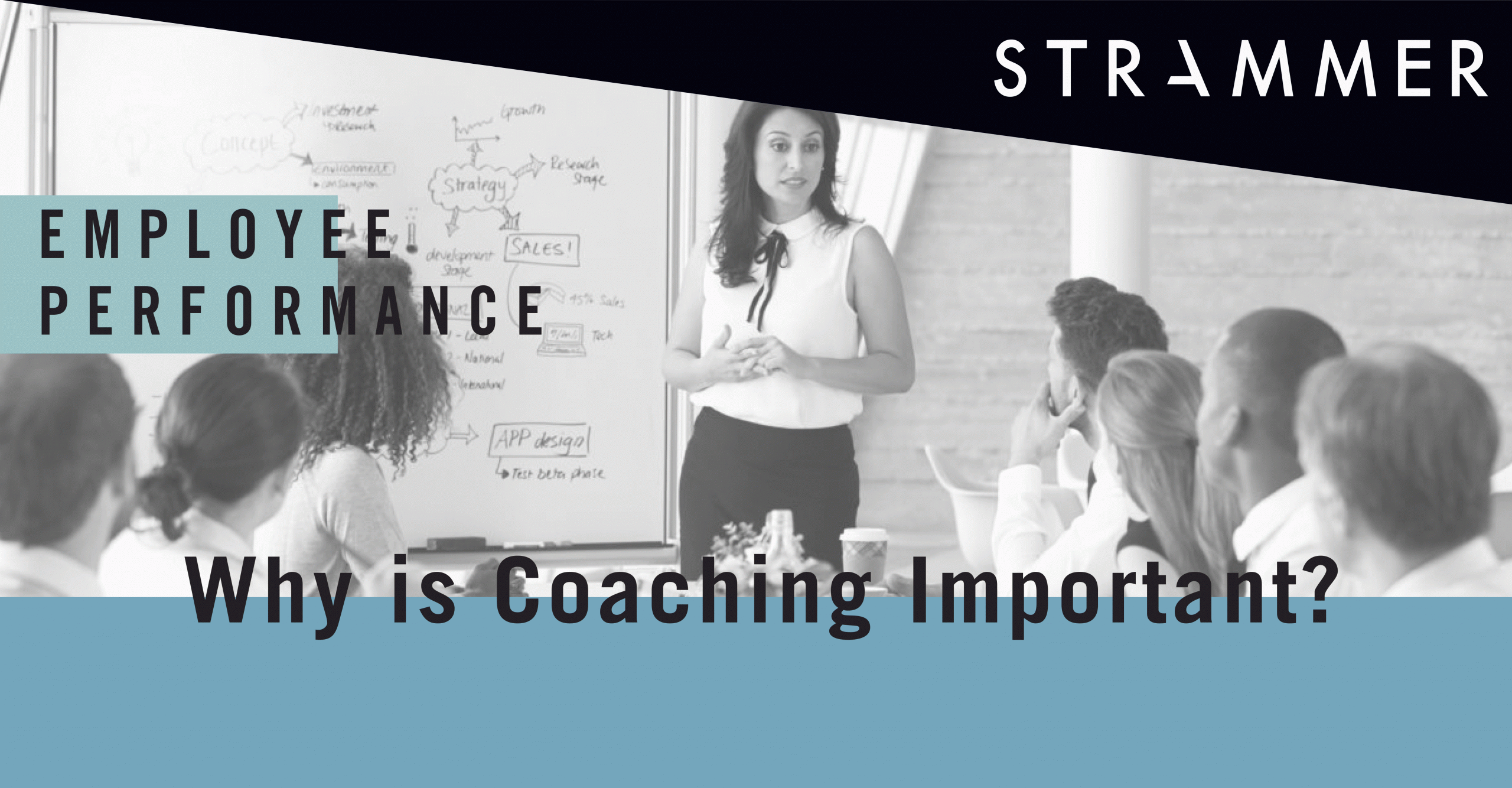The A-Z Of Coaching
A skilled and competent workforce can help your company stand out from the competition and succeed. Thus, organisations should encourage workers to strengthen their skills/abilities and discover new talents. In this article we get more understanding of the importance of efficient work-place coaching from STRAMMER’s very own.
According to what our Strategic Client Partner, Aurore Berdah, told us “The importance of efficient work-place coaching is that it is a way to accompany people and help them develop their skills to reach their full potential.” Bernard Chaminadour, another Strategic Client Partner here at STRAMMER, added that “it’s a way to help people grow and become autonomous in their professional lives.”
However, before we go any further with coaching, it is vital to distinguish it from individual training. According to Christophe Becquart, one of our Strategic Client Partners, the latter means “the transfer of knowledge from the trainer to the trainee. The trainer adopts a dominant position and remains in control of the content within the interaction”. He also added that coaching is not similar to this practice, as“the coachee decides what is meaningful to him/her to address and finds out in the session how to deal with it himself/herself.”
Having defined what coaching is and how it differs from other practices, it is now important to reflect on its benefits. First, coaching allows companies to create a regular and effective self-reflection culture in the workplace and open employees for feedback. It empowers workers who want to develop their skills by giving them a powerful resource for it. It encourages them to learn more about themselves, access new skills/talents they were not aware they had and strengthen known ones.
A very positive benefit of coaching is that it strengthens the workforce autonomy and ability to act. Indeed, it is a way of working through the reality and overcoming obstacles. Furthermore, since a Coach is someone neutral with whom managers and employees can talk, he/she enables conflict resolution by broadening the perspective of the coachee on situations. The result is an enhancement of the work environment and the relationships in the workplace. Bernard believes it is vital to have someone to talk to at work, he also added that “the higher up you go in the hierarchy, the more employees feel alone.”
At the same time, Aurore admits that coaching can improve engagement and job satisfaction, as it is a way for companies to show that they care and invest in their employees and that they are worth the investment. She also added that “Coaching and developing the workforce is cheaper than hiring new workers.”
What is the importance of efficient work-place coaching for companies? Coaching is an effective solution when facing complex situations. More specifically, Aurore explained that it is an effective support to help employees move into new positions and bring their impact faster. It is also efficient when they do not possess the necessary skills/competencies for a position. She also believes that organisations should invest in this practice when workers do not feel challenged or have doubts about their position. According to Bernard and as mentioned before, it can also be a good solution to resolve conflicts.
At STRAMMER, we have professional coaching services. Aurore explained to us that coaching can be about anything, “the goal is always to help the person in developing oneself.” It is a process centered around the coach, the coachee and the company. We offer two options: individual or group coaching. The number of sessions can vary depending on the complexity of the situations. The whole process lasts from 9 to 10 months, as this is the perfect time to monitor the evolution and growth of someone.
According to Aurore, the coaching process is decided beforehand, as it is part of a contract. There are 3 phases during the process, and they differ depending on the coachee and the objectives, as each coaching programme is personally adapted:
♦Contract phase on a three-party meeting Coach, coachee and the boss: Used to develop clarity on a strategy before implementing it, meaning structuring the process, the rules of interaction, and defining the objectives and indicators of the coaching.
♦Confidential exchange phase: Building/developing a connection between the coach and the coachee which can take some sessions. This allows a coaching centered on professional situations experienced by the coachee in relation to the coaching objectives set in contract.For instance, to make the coachee speak, Bernard likes to walk during his sessions, but his coaching methods can also include horse riding, drawing, etc. It all depends on the person and the goals that have been set. This phase is based in confidentiality. Three-party encounter phase: This is the phase where transformation is evaluated i.e. the accomplishments related to the objective set (including developed skills).
Bernard told us he knows that coaching is successful when he starts to « see changes, great things happening and when emotions are able to be expressed. If emotions are there, then it’s a good indicator of the coaching success. »
For Christophe, coaching is effective when « there is an impact on the coachee’s behaviours in his/her environment resulting in goals achievement ».
Coaching and success go hand in hand, and companies should not ignore that. With so many positive benefits, such as increased retention, increased workforce value, higher levels of productivity and motivation, etc. Learning the importance of efficient work-place coaching seems to be the best way to resolve many of the organisations’ issues.





